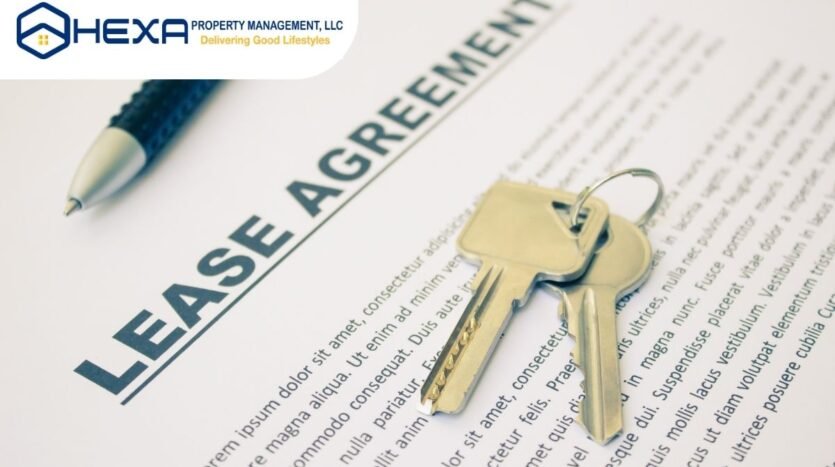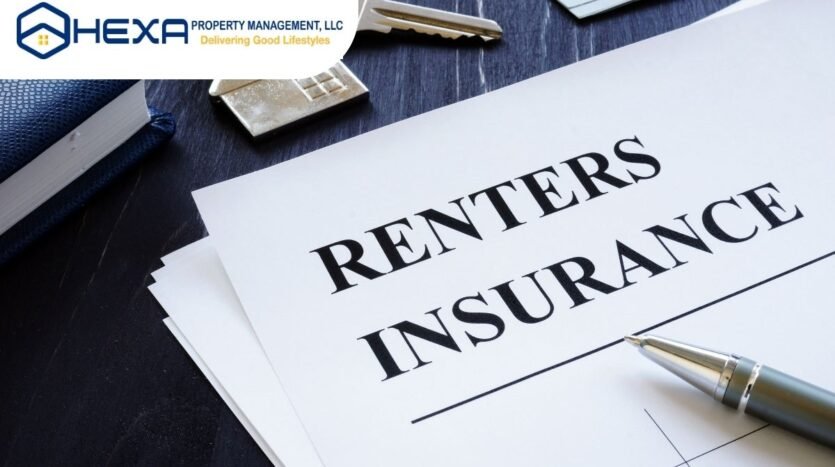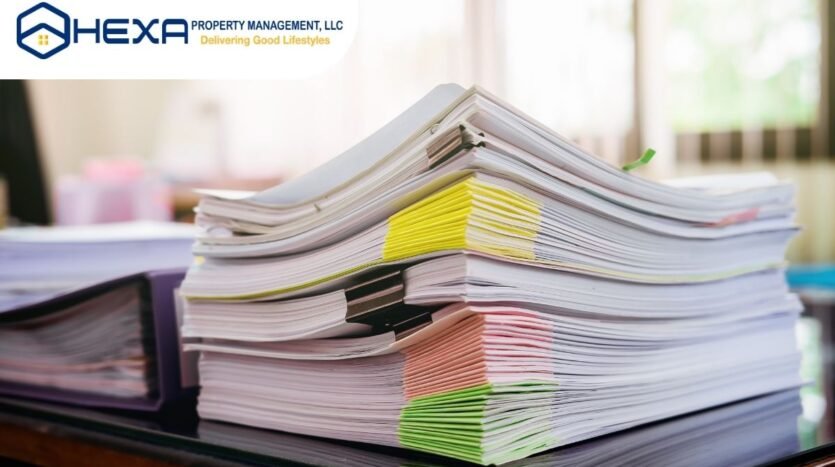January 10, 2024
Noticeable Tips For First-time Apartment Renters

Starting the adventure of finding your first apartment marks a big step toward independence. Navigating the process for the first time can be challenging, especially when you lack experience in renting. There is a risk of encountering issues such as scams if you need to research thoroughly and understand the intricacies involved in the rental process.
As you enter this new phase, to avoid these pitfalls, it is crucial to invest time and effort in gaining a better understanding of the rental process. Here are some simple tips for first-time apartment renters to set the stage for a positive and enjoyable apartment living experience.
Before you start
Before you embark on finding an apartment, it’s crucial to address some key questions to streamline your search and ensure a successful outcome.
1. What is Your Budget?
Determine a realistic budget that includes rent, utilities, maintenance, and other potential expenses. This will help you narrow down your options to properties within your financial means.
Example: “My monthly budget for rent is around $1,500, and I’ve allocated an additional $200 for utilities and miscellaneous expenses.”
2. What are Your Must-Have Features?
Identify the features and amenities that are non-negotiable for you. Whether it’s a specific number of bedrooms, proximity to public transportation, or in-unit laundry facilities, knowing your priorities will guide your search.
Example: “I need a two-bedroom apartment as I’ll be working from home. It must also have a designated parking space, as I own a car.”
3. What is Your Preferred Location?
Consider the location that best suits your lifestyle. Evaluate factors such as proximity to work or school, accessibility to amenities, and the overall safety and vibe of the neighborhood.
Example: “Ideally, I’m looking for an apartment within a 20-minute commute to my workplace and close to public transportation. Safety is a top priority, so I prefer neighborhoods with good reputations.”
4. How Long Do You Plan to Stay?
Determine the duration of your stay. If you’re planning to stay for a short period, a flexible lease might be preferable. For a longer-term commitment, you can explore more traditional leasing options.
Example: “I plan to stay in this city for at least two years due to my job. Therefore, I’m open to signing a longer-term lease for stability.”
5. Do You Have Pets?
If you have pets, it’s essential to consider pet-friendly apartments and understand any associated pet policies or additional fees.
Example: “Yes, I have a small dog. I must find a pet-friendly apartment with nearby parks or green spaces for walks.”
6. What are the Lease Terms and Conditions?
Review lease agreements carefully. Understand the terms, conditions, and any potential penalties for breaking the lease. This knowledge is crucial to avoid surprises later on.
Example: “I want to thoroughly understand the lease agreement before committing. I’ll look out for details on the duration of the lease, any renewal options, and potential penalties for breaking the lease.”
7. What is the Application Process?
Inquire about the application process for each potential apartment. Know what documents are required, the timeline for approval, and any associated application fees.
Example: “I’ll inquire about the application process for each potential apartment. I understand the importance of knowing what documents are required, the expected timeline for approval, and any associated application fees.”
8. Are There Any Additional Costs?
Beyond rent, inquire about additional costs such as security deposits, parking fees, and utility responsibilities. Knowing the full cost of living in a particular apartment will help you plan more effectively.
Example: “I want to be aware of all potential costs. Besides rent, I’ll ask about security deposits, parking fees, and whether utilities are included in the rent.”
Ask “Purposeful” questions during apartment tours
When attending apartment tours, asking questions is crucial to gather comprehensive information and make informed decisions. Here are several questions to consider asking:
Lease and Financial Matters
- What is the monthly rent, and what does it include?
- Are there any additional fees, such as maintenance or parking?
- What is the security deposit amount, and are there any conditions for its return?
Lease Terms
- How long is the lease term, and are there options for renewal?
- What is the policy for breaking the lease, if needed?
Utilities and Bills
- Which utilities are included in the rent, and which ones are the tenant’s responsibility?
- Can you provide an estimate of typical monthly utility costs?
Maintenance and Repairs
- How are maintenance requests handled?
- Is there an emergency maintenance hotline?
Amenities
- What amenities are included with the apartment or in the building?
- Are there any restrictions on using certain amenities?
Neighborhood and Safety
- Can you provide insights into the safety of the neighborhood?
- What public transportation options are nearby?
Parking and Transportation
- Is parking available, and is there an additional cost?
- How is public transportation accessibility in the area?
Apartment Policies
- Are there restrictions on painting or making modifications to the apartment?
- What is the policy on having guests or subletting?
Pet Policies
Are pets allowed, and if so, are there any restrictions or additional fees?
Is there a pet-friendly area or park nearby?
Security Measures
- What security measures are in place for the building or complex?
- Is there controlled access or security personnel?
Past Issues and Repairs
- Can you provide information about any recent repairs or issues in the apartment?
- Have there been any pest control problems in the building?
Leisure and Entertainment
- Are there nearby entertainment options, restaurants, or shopping centers?
- What is the noise level in the area, especially during evenings?
Appliance and Fixture Conditions
- How old are the major appliances, and when were they last updated?
- Are there any upcoming renovations or maintenance planned?
Understand the best time of year to rent an apartment
We use Texas as an example for an explanation of what you need to notice and research about the good time of year for renting an apartment. There are many benefits when you choose the right time like more choices and easy negotiation.
In Texas, including major cities like Houston, Dallas, and Austin, the best time to rent an apartment can be influenced by various factors. While general trends may apply, it’s essential to consider the local context and specific circumstances. Here’s an example of when it might be advantageous to rent an apartment in Texas:
Off-Peak Seasons
Late Fall to Early Spring: Similar to many other regions, late fall (after September) through early spring (March to May) can be considered off-peak seasons in Texas. The weather is relatively mild during these months, and fewer people tend to move. This could result in lower rental prices and increased flexibility in negotiations.
Peak Seasons
Summer Months: Summer is generally the peak season for moving in Texas. Families often prefer to relocate during the summer due to school schedules, and the warm weather is conducive to moving. However, keep in mind that the demand during this period may lead to higher rental prices.
Late Spring: Late spring, especially May, is another peak season. This is influenced by college students searching for housing before the start of a new academic year.
Local Factors
University Move-In Dates: Check the move-in dates for local universities, as this can impact rental demand, particularly in college towns like Austin.
Weather Considerations: In Texas, extreme weather conditions during the summer, such as high temperatures, might influence the timing of relocations. Some people may prefer to avoid moving during the hottest months.
Market Conditions
Economic Factors: Keep an eye on economic factors specific to Texas, such as job markets and industry trends. A booming job market may increase demand for rentals, potentially affecting prices.
Flexibility and Negotiation
End of the Month: Towards the end of the month, landlords may be more motivated to fill vacancies to avoid income loss.
Lease Expirations: Apartments with leases expiring could present negotiation opportunities, as landlords may be eager to secure new tenants promptly.
Get renters insurance
Acquiring renters insurance is a crucial step for anyone renting an apartment. Renter’s insurance provides financial protection and peace of mind by covering personal belongings, liability, and additional living expenses in the event of unexpected incidents.
Coverage for Personal Property
Renters insurance covers personal belongings not just within your apartment but also outside. This includes items stolen from your car or lost while traveling. It’s essential to understand the policy’s coverage limits and whether high-value items like jewelry or electronics require additional endorsements.
Liability Protection
Liability coverage is crucial in scenarios where you could be held responsible for injury to someone else or damage to their property. This can include situations like a guest slipping and falling in your apartment or accidentally causing damage to a neighbor’s property.
Additional Living Expenses (ALE)
ALE coverage is particularly valuable if your rented apartment becomes uninhabitable due to covered perils. This coverage helps with expenses incurred while living elsewhere, such as hotel bills, meals, and transportation.
Affordability
Renters insurance is generally affordable, with monthly or annual premiums that fit most budgets. The cost is influenced by factors like your location, the coverage amount, and your chosen deductible. Many insurance providers offer discounts for bundling policies or having safety features in your apartment, such as smoke detectors.
Policy Customization
Renters insurance policies are flexible, allowing you to customize coverage based on your needs. If you own high-value items like artwork or expensive electronics, you can increase coverage limits or add endorsements for specific items.
Landlord Requirements
While not mandatory in all cases, some landlords may require tenants to have renters insurance as part of the lease agreement. Even if it’s not obligatory, having renters insurance is advisable to protect your personal property and minimize potential disputes with landlords.
Documentation of Belongings
Before obtaining renters insurance, create a detailed inventory of your belongings. Take photographs, keep receipts, and make notes on the estimated value of each item. This documentation is invaluable when filing a claim, helping to expedite the process and ensure you receive fair compensation.
Comparison Shopping
It’s essential to shop around and obtain quotes from multiple insurance providers. Compare coverage options, deductibles, and any additional features offered. Look for reputable insurance companies with good customer reviews and a history of reliable claims processing.
Understanding Policy Exclusions
Every insurance policy has exclusions, and renters insurance is no exception. Be aware of what is not covered, such as certain natural disasters or specific high-risk items. Consider whether additional coverage or endorsements are needed to fill potential gaps in protection.
Reviewing and Updating
Regularly review your renter’s insurance policy, especially after major life changes like getting married, acquiring valuable assets, or moving to a new apartment. Ensure that your coverage aligns with your current lifestyle and possessions.
In conclusion, embarking on your journey as a first-time apartment renter demands careful consideration and proactive measures. From setting a realistic budget to understanding lease agreements, each step is pivotal. Asking purposeful questions during apartment tours and knowing the opportune time to rent in your location, exemplified by Texas, can be game-changers.
Additionally, securing renters insurance ensures comprehensive protection for your belongings and peace of mind. These tips, when woven together, create a robust guide for navigating the intricate landscape of apartment renting. As you venture into this newfound independence, these insights stand as pillars, supporting a smooth transition and a fulfilling living experience in your first rented abode.
























